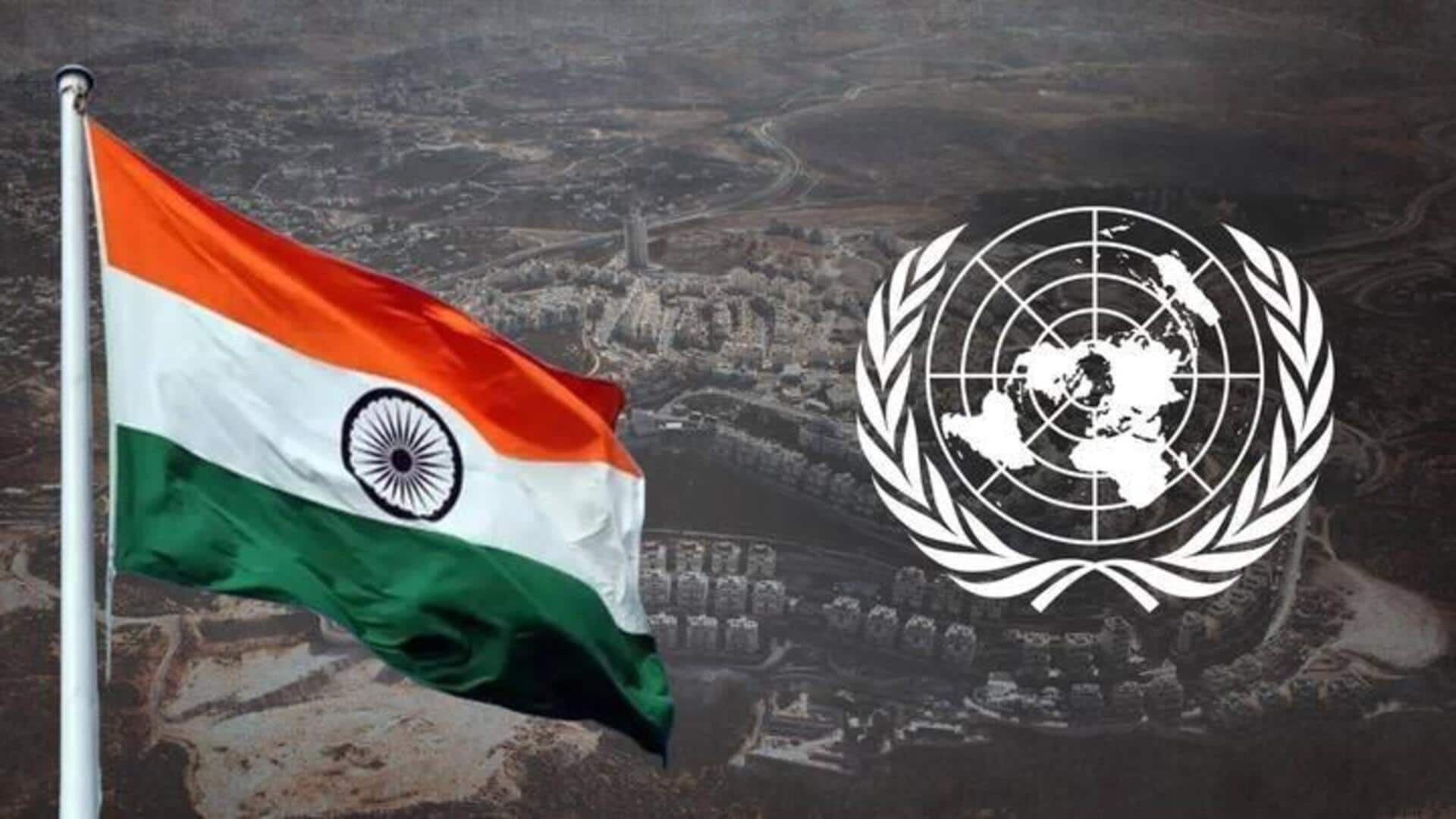
India abstains from voting on Islamophobia in UNGA; explains why
What's the story
India on Friday (local time) chose to abstain from a United Nations General Assembly (UNGA) vote on a resolution addressing Islamophobia, which was introduced by Pakistan and supported by China. The 193-member UNGA adopted the resolution, calling for "measures to combat Islamophobia," with 115 countries supporting it and no opposing votes. However, at least 44 countries remained absent from voting, including India, Brazil, France, Germany, Italy, Ukraine, and the United Kingdom.
Context
Why does this story matter?
Concerns over Islamophobia have intensified since the outbreak of the Israel-Hamas war in Gaza, where thousands of people have been killed. Pakistan's resolution requested the UN Secretary-General Antonio Guterres to appoint the UN's special envoy to combat Islamophobia, which India opposed. To recall, the UNGA declared March 15 as International Day to Combat Islamophobia after passing a resolution in 2022 in response to the 2019 mass shootings in two mosques in Christchurch, New Zealand, which killed over 50 people.
India's statement
India's stance on 'Islamophobia' resolution
In her address, India's permanent representative to the UN, Ruchira Kamboj, spoke out against "anti-Semitism," "Christianophobia," and "Islamophobia" but emphasized that religious discrimination extends beyond Abrahamic faiths. "Clear evidence shows that over decades, followers of non-Abrahamic religions have also been affected by religiophobia," she said. "This has led to the emergence of contemporary forms of religiophobia, particularly anti-Hindu, anti-Buddhist and anti-Sikh sentiments," Kamboj said.
UN divide
Kamboj expresses concern about divide in UN
Kamboj expressed concern that adopting the resolution could lead to numerous resolutions focused on specific religions, potentially dividing the UN. She said that the UN must maintain its stance above such religious concerns. Kamboj called on all member states to recognize the broader issue of religious discrimination worldwide. "Allocating resources solely to combat Islamophobia while neglecting similar challenges faced by other faiths might inadvertently perpetuate a sense of exclusion and inequality."
Twitter Post
Watch: Kamboj speaking at UNGA
#IndiaAtUN
— India at UN, NY (@IndiaUNNewYork) March 15, 2024
PR delivers the explanation of India's position during the adoption of the resolution on 'Measures to combat Islamophobia' at the United Nations General Assembly today. pic.twitter.com/AheU8UvpYM
Statement
UN chief Guterres on Islamophobia, religious discrimination
In his message on International Day to Combat Islamophobia, Guterres highlighted a "rising tide of anti-Muslim hate and bigotry in many forms." He claimed Muslims faced structural and systemic discrimination, unequal immigration policies, unwarranted surveillance, profiling, and restrictions on accessing citizenship, employment, and justice. He also voiced concern over "supremacist ideologies and attacks" against Jews, minority Christian communities, and...others. "Hatred of one group fuels hatred of another. Hate normalizes hate. Hate destroys the fabric of our societies," he said.